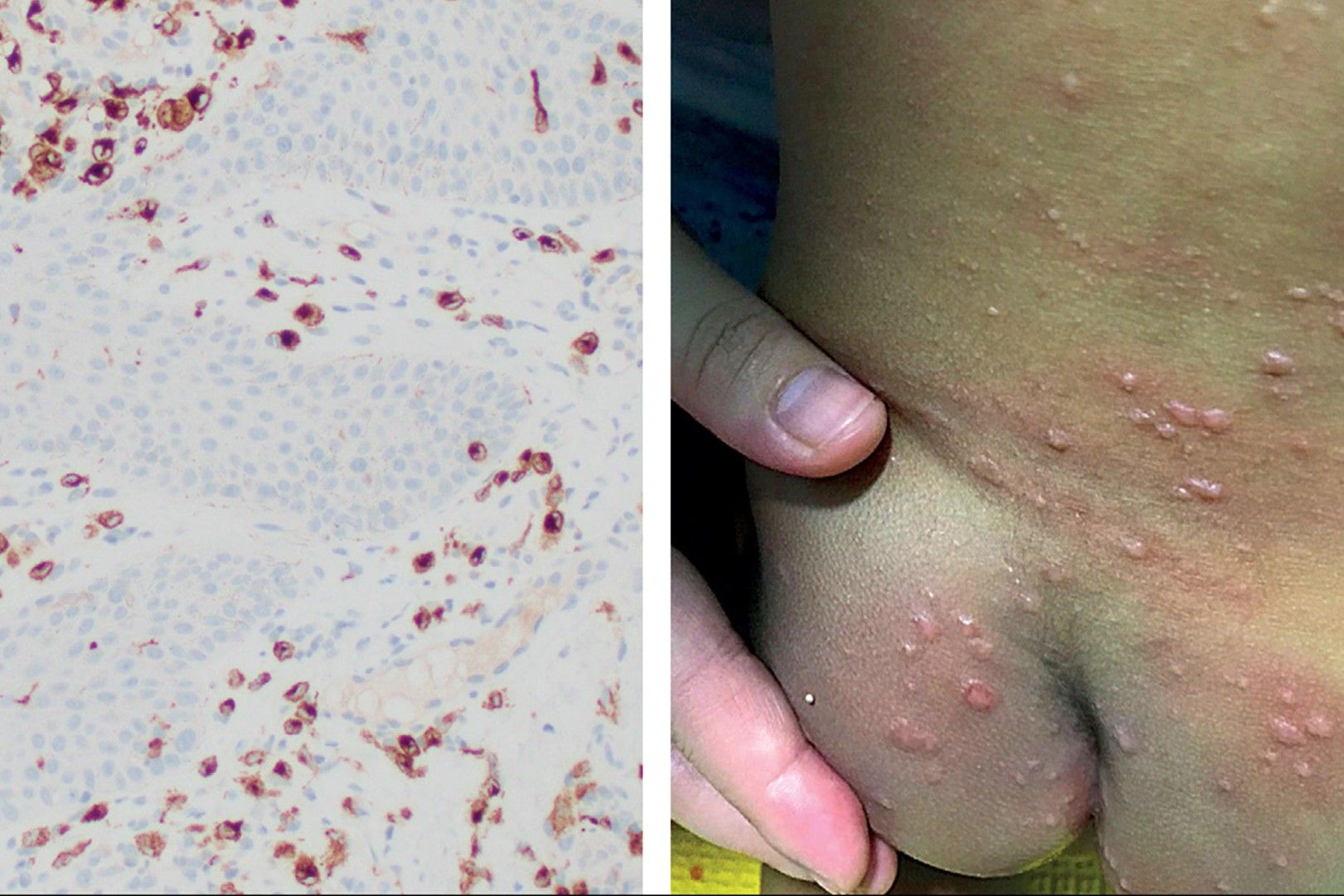
What is histiocytosis? Histiocytosis is a rare disease involving an abnormal increase in the number of immune cells called histiocytes. These cells usually help fight infections, but in histiocytosis, they can build up and cause damage to organs and tissues. Is histiocytosis cancer? While some forms of histiocytosis can behave like cancer, it is not classified as such. Who gets histiocytosis? It can affect anyone, but it is most commonly diagnosed in children. What are the symptoms? Symptoms vary widely depending on which organs are affected, ranging from skin rashes to bone pain. How is it treated? Treatment options include chemotherapy, radiation, and steroids. Why is it important to know about histiocytosis? Awareness can lead to early diagnosis and better management of the disease.
What is Histiocytosis?
Histiocytosis is a rare disorder involving an abnormal increase in the number of immune cells called histiocytes. These cells can accumulate in various tissues and organs, leading to a range of symptoms and complications.
- Histiocytosis primarily affects children, though adults can also develop the condition.
- There are several types of histiocytosis, including Langerhans cell histiocytosis (LCH), hemophagocytic lymphohistiocytosis (HLH), and Erdheim-Chester disease (ECD).
- Langerhans cell histiocytosis is the most common form, named after the German physician Paul Langerhans.
- Histiocytosis can affect any part of the body, but commonly involves the skin, bones, and organs like the liver and spleen.
- The exact cause of histiocytosis remains unknown, though genetic mutations and immune system dysfunction are suspected factors.
Symptoms of Histiocytosis
Symptoms can vary widely depending on the type and location of histiocytosis. Here are some common signs to watch for.
- Skin rashes or lesions are often the first noticeable symptoms.
- Bone pain and fractures can occur due to histiocyte accumulation in the bones.
- Enlarged lymph nodes may be a sign of histiocytosis.
- Persistent fever and fatigue are common in many types of histiocytosis.
- In severe cases, organ dysfunction can lead to life-threatening complications.
Diagnosis of Histiocytosis
Diagnosing histiocytosis involves a combination of clinical evaluation, imaging studies, and laboratory tests.
- A biopsy of affected tissue is often necessary to confirm the diagnosis.
- Blood tests can help identify markers of inflammation and immune system activity.
- Imaging studies like X-rays, CT scans, and MRIs are used to assess the extent of the disease.
- Genetic testing may be performed to identify mutations associated with histiocytosis.
- Early diagnosis is crucial for effective treatment and management of the disease.
Treatment Options for Histiocytosis
Treatment varies depending on the type and severity of histiocytosis. Here are some common approaches.
- Chemotherapy is often used to reduce the number of histiocytes in the body.
- Steroids can help control inflammation and immune system activity.
- Targeted therapies, such as BRAF inhibitors, are used for specific genetic mutations.
- Radiation therapy may be employed to treat localized bone lesions.
- In severe cases, a bone marrow transplant might be necessary.
Prognosis and Long-term Outlook
The prognosis for histiocytosis can vary widely based on several factors.
- Early diagnosis and treatment significantly improve the chances of a positive outcome.
- Some patients may experience long-term remission, while others might have recurrent episodes.
- Chronic forms of histiocytosis can lead to ongoing health issues and require lifelong management.
- Regular follow-up with healthcare providers is essential for monitoring the disease.
- Advances in research are continually improving the understanding and treatment of histiocytosis.
Research and Advances in Histiocytosis
Ongoing research is crucial for developing better treatments and understanding histiocytosis.
- Clinical trials are exploring new therapies and treatment combinations.
- Researchers are investigating the genetic basis of histiocytosis to identify potential targets for therapy.
- Advances in immunotherapy offer promising new treatment options.
- Patient registries and databases help track outcomes and improve care.
- Collaboration between researchers, clinicians, and patient advocacy groups is driving progress in the field.
Living with Histiocytosis
Managing histiocytosis involves more than just medical treatment. Here are some tips for living with the condition.
- Support groups and counseling can provide emotional support for patients and families.
- Maintaining a healthy lifestyle, including a balanced diet and regular exercise, can improve overall well-being.
- Staying informed about the latest research and treatment options empowers patients to make informed decisions.
- Regular communication with healthcare providers ensures timely adjustments to treatment plans.
- Advocating for awareness and funding for histiocytosis research can help drive progress.
Histiocytosis in Popular Culture
Histiocytosis, though rare, has made appearances in popular culture and media.
- Some celebrities and public figures have shared their experiences with histiocytosis, raising awareness about the condition.
Final Thoughts on Histiocytosis
Histiocytosis, though rare, impacts many lives. Understanding its symptoms, types, and treatments can make a big difference. Early detection and proper care are crucial for managing this condition. Patients and families should seek support from medical professionals and support groups. Staying informed and proactive can lead to better outcomes.
Research continues to evolve, offering hope for new treatments and improved quality of life. Awareness and education are key in the fight against histiocytosis. By sharing knowledge, we can help those affected feel less alone and more empowered.
Remember, every bit of information helps. Whether you're a patient, caregiver, or just curious, knowing more about histiocytosis can make a real impact. Stay curious, stay informed, and support those on this journey.
Was this page helpful?
Our commitment to delivering trustworthy and engaging content is at the heart of what we do. Each fact on our site is contributed by real users like you, bringing a wealth of diverse insights and information. To ensure the highest standards of accuracy and reliability, our dedicated editors meticulously review each submission. This process guarantees that the facts we share are not only fascinating but also credible. Trust in our commitment to quality and authenticity as you explore and learn with us.
